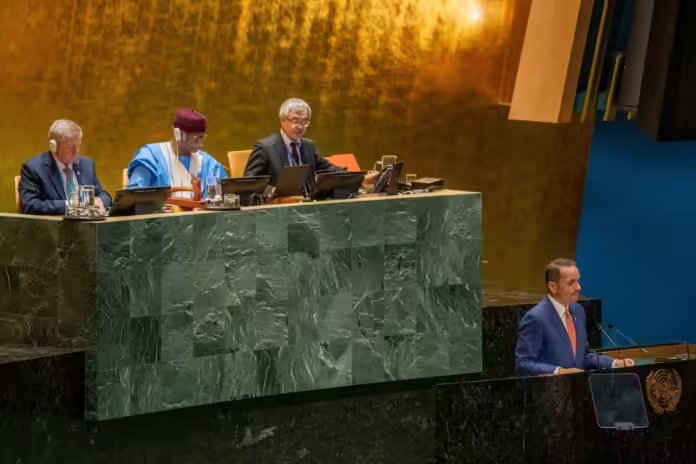The United Nations adopted a wide-ranging “Pact for the Future” on Sunday, aimed at tackling global crises including conflicts, environmental threats, and emerging technological challenges. While UN Secretary-General Antonio Guterres hailed the blueprint as a “landmark agreement” towards more effective global cooperation, critics dismissed it as lacking ambition.
The adoption, which marked the opening of the UN General Assembly’s high-level week, saw world leaders pledge to strengthen multilateral institutions to keep pace with a changing world and address the needs of both current and future generations facing persistent crises. The pact outlines 56 key actions, including commitments to uphold multilateralism, the UN Charter, and peacekeeping efforts. It also calls for reforms to international financial institutions, the UN Security Council, and renewed efforts on climate change, disarmament, and managing artificial intelligence.
However, last-minute objections from Russia and its allies, including Belarus, North Korea, and Iran, nearly derailed the process. Russia’s deputy foreign minister, Sergey Vershinin, proposed an amendment emphasizing non-interference in state affairs, which was ultimately rejected by an overwhelming majority. German Chancellor Olaf Scholz, a co-sponsor of the text, criticized Russia’s attempt to stall the pact, expressing relief at its adoption.
Despite some praise, the pact has been viewed by many as falling short of its original transformative goals. Richard Gowan of the International Crisis Group noted that while the document contains “good ideas,” it is not the bold overhaul of global multilateralism that Guterres had initially envisioned.
Climate change negotiations were a contentious point, with earlier references to the transition from fossil fuels removed and later reinstated. Environmental groups, such as 350.org, stressed that the real challenge lies in implementing the pact’s commitments.
While developing countries expressed support, particularly on issues of financial reform and climate resilience, many called for concrete actions to follow. Sierra Leone’s President Julius Maada Bio praised the agreement, calling it a beacon of hope for the Global South amid pressing global challenges.



